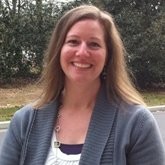
Robert B. Beattie
- Courses5
- Reviews8
- School: University of Wisconsin
- Campus: Madison
- Department: Not Specified
- Email address: Join to see
- Phone: Join to see
-
Location:
Madison, WI - Dates at University of Wisconsin: January 2013 - January 2020
- Office Hours: Join to see
N/A
Would take again: Yes
For Credit: Yes
0
0
Mandatory
Awesome
This man is a legend. He found a bee in the lecture hall and carried it in his hands through the building and let it go outside. He is passionate not just about bees but about the environment as well and it shows in his lectures. He acknowledges his own possible bias and teaches in a moderately impartial manner.
N/A
Would take again: Yes
For Credit: Yes
0
0
Not Mandatory
Awesome
50/60 of the final exam questions under Professor Beattie were taken from the quizzes. So, it was very easy to ace as long as you go back and study the answers. The topics in the class were engaging and interesting. The papers were straightforward and easy to write too. The only thing that brought down my grade was the quizzes. However, it's not that much. Overall, the professor is great as well as the class.
Biography
University of Wisconsin Madison - Not Specified
Core Instructor, Environmental Conservation Professional Masters Program at University Of Wisconsin — Madison
Higher Education
Robert
Beattie
Madison, Wisconsin Area
I am a university-level instructor and administrator who delivers academic programs for graduate and undergraduate students in environmental studies. My teaching focuses on helping students to understand and respond to complex environmental issues. For over 20 years I have designed graduate and undergraduate environmental educational and training programs that prepare future generations of environmental professionals. To support these efforts I have managed well over $3 million dollars in federal, state, and non-profit grants, and have written or co-written federal and non-profit grants worth over $1.4 million.
Experience
University of Wisconsin-Madison
Core Instructor, Environmental Conservation Professional Masters Program
I develop and teach core courses focusing on environmental communication, decision making, and program evaluation for an intensive 15-month Masters program in Environmental Conservation.
University of Wisconsin-Madison
Co-Director and Academic Coordinator, Community Environmental Scholars Program
I teach, develop curriculum, and write supporting grants for the Community Environmental Scholars Program. The Community Environmental Scholars Program (CESP) gives career guidance, service-learning opportunities, financial support, and a supportive, reflective environment to Environmental Studies students who want to link their passion for the environment with a commitment to community service. Click on the image below to see a short film about CESP.
University of Wisconsin-Madison
Associate Director, CHANGE Program
I taught in, and helped to develop the curriculum for, the the Nelson Institute's graduate Certificate on Humans and the Global Environment (CHANGE). CHANGE trained graduate students to work together on interdisciplinary teams to tackle issues of environmental vulnerability and sustainability. CHANGE students took courses in environmental systems modeling, ethnographic and social science approaches to sustainability, and interpersonal and interdisciplinary communication. The CHANGE capstone class gave teams of students the opportunity to work with an outside client on a real-world issue of sustainability or vulnerability. The success of CHANGE is demonstrated by the success of our graduates. The program has been particularly useful for Ph.D. students seeking interdisciplinary academic positions.
Tetra Tech NUS
Community Relations Specialist
Provided analytical and logistical support for the community outreach components of various environmental projects. Projects included federal and state hazardous waste cleanups, environmental impact assessments, and brownfields redevelopment.
JK Research Associates
Associate
Developed public involvement strategies for technically and politically complex environmental planning efforts
UMass Boston
Director, Undergraduate Environmental Studies Program
Associate Director and then Director of an interdisciplinary program of study (undergraduate minor) that served 10-30 students/year.
Barry Lawson Associates
Associate
Developed and implemented public involvement strategies for environmental planning projects.
Education
State University of New York College of Environmental Sciences and Forestry
MS
Environmental Studies
University of Wisconsin-Madison
B.S.
Communication Arts and Environmental Studies
University of Wisconsin-Madison
Core Instructor, Environmental Conservation Professional Masters Program
I develop and teach core courses focusing on environmental communication, decision making, and program evaluation for an intensive 15-month Masters program in Environmental Conservation.University of Wisconsin-Madison
Co-Director and Academic Coordinator, Community Environmental Scholars Program
I teach, develop curriculum, and write supporting grants for the Community Environmental Scholars Program. The Community Environmental Scholars Program (CESP) gives career guidance, service-learning opportunities, financial support, and a supportive, reflective environment to Environmental Studies students who want to link their passion for the environment with a commitment to community service. Click on the image below to see a short film about CESP.University of Wisconsin-Madison
Associate Director, CHANGE Program
I taught in, and helped to develop the curriculum for, the the Nelson Institute's graduate Certificate on Humans and the Global Environment (CHANGE). CHANGE trained graduate students to work together on interdisciplinary teams to tackle issues of environmental vulnerability and sustainability. CHANGE students took courses in environmental systems modeling, ethnographic and social science approaches to sustainability, and interpersonal and interdisciplinary communication. The CHANGE capstone class gave teams of students the opportunity to work with an outside client on a real-world issue of sustainability or vulnerability. The success of CHANGE is demonstrated by the success of our graduates. The program has been particularly useful for Ph.D. students seeking interdisciplinary academic positions.Massachusetts Institute of Technology
PhD
Environmental Planning (DUSP)




